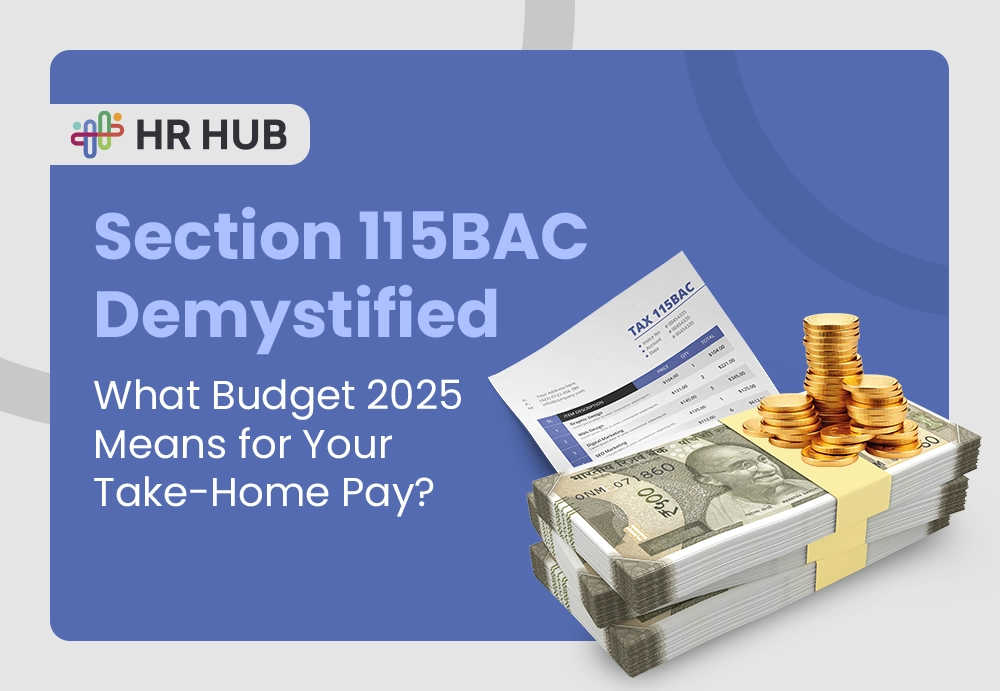When did your HR team last have to deal with countless spreadsheets, late-night payroll reconciliations, or the pressure of filling critical positions? What if the same team had a partner who could tailor experiences for each employee, anticipate problems before they arise, and read data faster than a human? That partner is Artificial Intelligence, and it is rewriting the story of Human Resources through HR system software.
But here’s the twist: AI itself isn’t the hero. The real success lies in how HR leaders choose to apply it. Used wisely, it transforms HR from an administrative back office function into a core driver of organizational growth.
The Essential Role of AI in HR
Let’s take a deep dive into the key roles that HR needs to play or adopt in terms of AI to meet their daily needs.
Recruitment That Understands Talent
Recruitment has always been one of the most time-consuming functions of HR. Manually screening applications, shortlisting candidates, and coordinating interviews can take weeks or even months to complete.
AI in HR management systems has completely altered this story.
- Smart Resume Parsing: Instead of keyword-based searches, AI reads resumes like a human recruiter. It identifies transferable skills, patterns of career growth, and compatibility with the job description.
- Bias Reduction: Traditional hiring processes often suffer from unconscious bias. AI can be trained to disregard factors such as gender, age, or background and focus solely on skill alignment.
- Virtual Assistance: Candidate queries no longer wait for office hours. AI chatbots answer questions, provide updates on application status, and even conduct first-round screenings through structured conversations.
The real advantage is not just speed. It is the ability to match the right candidate with the right role, creating stronger teams from the start.

Listening Beyond Annual Surveys
Employee engagement cannot be measured once a year through surveys. By the time HR reviews results, morale issues may have already spread. AI changes this approach by creating continuous listening mechanisms.
- Sentiment Analysis: AI tools scan employee feedback from surveys, emails, and collaboration platforms to detect shifts in mood and engagement levels.
- Proactive Support: If disengagement patterns are spotted early, HR can take immediate action — from scheduling team check-ins to providing mental health resources.
- Personalized Recommendations: Employees who demonstrate an interest in career advancement may be recommended for leadership programs, while those facing stress may be guided towards wellness initiatives.
This real-time responsiveness ensures that HR is not reactive but actively shaping the employee experience every day.
Moving from Annual Reviews to Real-Time Performance
For a long time, annual performance reviews have been criticized for being unfair and outdated. AI enables HR system software to turn performance management into an ongoing process.
- Skill Development Paths: AI highlights gaps between current employee skills and future role requirements, recommending specific training courses.
- Attrition Prediction: By examining an employee's work habits, attendance, and feedback, AI can determine which employees might be thinking about leaving. Managers can assist staff members early on by offering support or having career conversations.
- Constant Feedback: Rather than waiting months for official reviews, managers can offer prompt acknowledgment or helpful criticism thanks to AI dashboards.
Instead of evaluating workers solely on their prior performance, this strategy fosters a culture of growth, where they feel encouraged to realize their full potential.
Payroll Without Errors or Delays
Payroll is a delicate subject, where even small mistakes can cause significant issues. Manual adjustments are frequently necessary for traditional systems, which raises the possibility of errors. AI-enabled HR system software introduces reliability and compliance at scale.
- Automated Calculations: From overtime to tax deductions, AI handles everything with accuracy.
- Regulatory Updates: Labor laws are subject to frequent changes, and non-compliance can be costly. AI tracks legal updates and automatically adjusts payroll rules.
- Anomaly Detection: If an expense claim appears unusual or if payroll hours do not align with attendance data, the system raises alerts to prevent issues from escalating.
For employees, this means confidence in receiving accurate salaries. For HR, it removes the stress of payroll errors and compliance risks.
Workforce Planning with Clarity
Strategic workforce planning used to be based on rough estimates or management intuition. AI brings science to the process.
- Demand Forecasting: AI predicts the number of employees required for upcoming projects, seasonal demands, or expansion into new markets.
- Succession Planning: By analyzing performance, skills, and leadership potential, AI identifies employees who are ready to assume critical roles.
- Budget Alignment: AI links workforce data with financial projections, helping HR and finance teams plan talent costs with precision.
With these capabilities, HR is no longer just executing business strategy; it is actively shaping it.
Strategies HR Leaders Need to Apply
AI in HR is powerful, but its true value depends on strategy. Here is the playbook that separates successful organizations from the rest.
Build a Data-Driven Culture
AI insights are only as good as the data on which they are built. HR leaders must ensure that data across payroll, attendance, engagement, and performance is centralized, accurate, and continuously updated. Clean data creates reliable insights and prevents poor decision-making.
Balance Technology with Human Connection
People often worry that AI will take the place of human interaction in human resources. In reality, the opposite is true when used correctly. Automating repetitive tasks enables HR professionals to allocate more time to meaningful interactions, such as coaching, conflict resolution, and fostering a culture.
The secret lies in letting technology handle the repetitive load while humans focus on empathy.
Make Ethics a Priority
Bias still exists in AI. In actuality, ill-conceived systems have the potential to exacerbate already-existing disparities. To ensure that AI results are fair, HR directors should implement ethical frameworks.
For instance, a recruitment tool needs to be adjusted if it routinely gives preference to particular educational backgrounds. In the HR department as well as throughout the company, transparency fosters trust.
Create Personalized Employee Journeys
Employees no longer want generic training modules or blanket benefits. They look for career paths that complement their goals and way of life. Organizations can create highly personalized journeys with AI in HR management systems, such as learning paths that are specifically tailored to each employee's needs, benefits packages that are adapted to the needs of families, and recognition programs that honor exceptional contributions.
Invest in Upskilling and Digital Literacy
HR teams will fail if AI is introduced without proper training. Leaders must ensure that HR staff members have the self-assurance to read AI dashboards, decipher predictive analytics, and make informed decisions based on the information they provide. Workers throughout the organization should also be trained in digital literacy, ensuring AI is embraced as a support system rather than a threat.
Communicate, Communicate, Communicate
AI adoption calls for a shift in culture. Workers might be concerned about being watched or losing their jobs. Open and honest communication is essential. Leaders ought to describe how AI makes things easier, increases equity, and opens doors. Pilot projects, feedback sessions, and open discussions help build confidence and trust.
Align AI with Business Priorities
Not every AI tool is right for every business. A startup may benefit most from HR software specifically designed for small businesses, which streamlines payroll and hiring processes.
A large enterprise may prioritize advanced workforce forecasting in HR system software. What matters is aligning AI initiatives with core business goals and tracking clear success metrics such as reduced recruitment time, improved retention rates, or higher employee satisfaction.

Shaping the Future with HR HUB
The journey of HR is no longer about managing people through paperwork. It is about creating experiences that inspire, empower, and retain talent. AI-driven HR is the bridge to that future. From smarter hiring to proactive engagement, from predictive performance to risk-free payroll, the possibilities are transformative.
This is exactly where HR HUB makes an impact. Built to integrate the best of HR system software with intelligent automation, HR HUB helps organizations streamline payroll, compliance, and performance management while keeping employees at the heart of every decision. It is not just a tool but a partner who gives HR leaders the clarity and confidence they need to drive growth.
HR's future will be shaped by more than just technology. How leaders combine human empathy and machine intelligence will determine it. Employers can create workplaces that are more intelligent, equitable, and genuinely prepared for the future by implementing the appropriate plans and tools, such as HR HUB.






